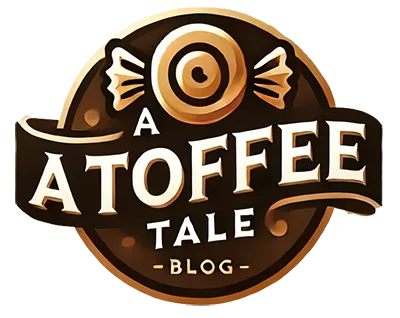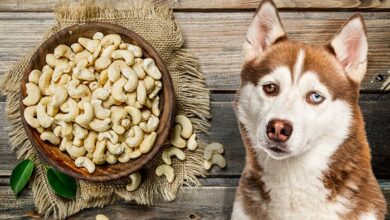Can Dogs Eat Lollipops? Pros, Cons, and Safer Alternatives-2024

Can Dogs Eat Lollipops? While lollipops might seem like a fun treat to share with your dog, they come with risks that outweigh any potential benefits. Dogs love sweet tastes, so a lollipop might catch their attention, and it could even keep them entertained for a short while as they try to get the candy off the stick.
However, sharing a lollipop with your dog can lead to health problems due to the high sugar content and other harmful ingredients. It’s important to remember that treats meant for humans, like lollipops, are not the best choice for your dog’s health. Let’s briefly discuss that- can dogs eat Lollipops?
The Cons of Lollipops for Dogs-Can Dogs Eat Lollipops?
Can Dogs Eat Lollipops? While it may be tempting to give your dog a taste of something sweet, lollipops are not a safe or healthy treat for them. The risks associated with lollipops go beyond just the sugar content. Here are the main reasons why lollipops should be avoided:
High Sugar Content
Lollipops are loaded with sugar, which can be detrimental to your dog’s health. High sugar intake can contribute to:
- Weight Gain: Excessive sugar consumption leads to weight gain, which in turn increases the risk of obesity and related health problems.
- Diabetes: Just like in humans, excessive sugar can lead to insulin resistance and eventually diabetes in dogs.
- Metabolic Issues: Over time, high sugar consumption can lead to metabolic disturbances and compromise overall health.
Choking Hazard
Can Dogs Eat Lollipops? Lollipops are hard and have a stick, both of which pose significant choking risks for dogs. If a dog swallows the candy or sticks incorrectly, it can cause a blockage in their airway or digestive tract. This can lead to:
- Choking: Hard candies can get lodged in the throat, causing breathing difficulties or even suffocation.
- Internal Injuries: The sharp stick or hard candy can cause damage to the digestive system if swallowed improperly, leading to serious internal injuries that may require veterinary intervention.
Toxic Additives
Many lollipops contain ingredients that are toxic to dogs. These include:
- Xylitol: A common sugar substitute, xylitol is highly toxic to dogs. Even small amounts can cause severe drops in blood sugar, liver failure, seizures, and death.
- Artificial Sweeteners and Colors: Other artificial additives found in lollipops may trigger allergies, digestive problems, or hyperactivity in dogs. These substances can also contribute to long-term health problems.
Dental Damage
The sugar in lollipops not only affects your dog’s overall health but also their dental health. Here’s how:
- Tooth Decay and Cavities: Sugar sticks to teeth and feeds harmful bacteria in the mouth, which can lead to plaque buildup, cavities, and tooth decay.
- Gum Disease: Regular exposure to sugary treats can also contribute to gum disease, causing inflammation, pain, and possible tooth loss over time.
- Bad Breath: The buildup of bacteria due to sugary treats often leads to bad breath, a sign that your dog’s dental hygiene is being compromised.
Can Dogs Eat Lollipops? Given the serious health risks posed by lollipops, it is best to avoid sharing these sugary treats with your dog and choose safer, healthier alternatives.
Xylitol and Other Dangerous Ingredients in Lollipops
Can Dogs Eat Lollipops? Lollipops may seem like a harmless treat for humans, but for dogs, they can be a hidden danger. Many lollipops contain ingredients that are toxic to dogs, and consuming them can lead to serious health issues. Here’s a breakdown of some of the most dangerous ingredients commonly found in lollipops:
Xylitol Poisoning
One of the most dangerous ingredients in lollipops is xylitol, a sugar substitute often used in sugar-free candies, gums, and other sweets. For dogs, xylitol is extremely toxic and can cause:
- Low Blood Sugar (Hypoglycemia): Even small amounts of xylitol can cause a rapid drop in your dog’s blood sugar levels, leading to symptoms like weakness, disorientation, seizures, and in severe cases, coma or death.
- Liver Failure: Xylitol can also cause damage to your dog’s liver, which can be fatal if not treated promptly.
Because of its potency, xylitol should be avoided at all costs. If you suspect your dog has ingested xylitol, seek emergency veterinary care immediately.
Artificial Sweeteners and Dyes
Many lollipops are packed with artificial sweeteners and dyes that are harmful to dogs. These include:
- Artificial Sweeteners: Substances like sorbitol, maltitol, and aspartame are commonly used to sweeten sugar-free lollipops. These can cause digestive upset in dogs, including diarrhea and stomach cramps, and may lead to long-term health issues if consumed regularly.
- Artificial Dyes: Lollipops often contain food colorings such as red 40, yellow 5, or blue 1. These dyes can irritate your dog’s digestive system, causing symptoms like vomiting or diarrhea. In some cases, artificial dyes can trigger allergies or hyperactivity, especially in sensitive dogs.
Chocolate-Flavored Lollipops
Some lollipops come in chocolate or cocoa flavors, which are dangerous for dogs due to their content of caffeine and theobromine. Both of these compounds are toxic to dogs and can cause:
- Toxicity: Chocolate contains caffeine and theobromine, which can lead to symptoms like rapid breathing, increased heart rate, seizures, and in extreme cases, death.
- Digestive Issues: Ingesting chocolate can also cause vomiting, diarrhea, and abdominal pain, and it may lead to serious heart and neurological complications.
Can Dogs Eat Lollipops? Given these dangerous ingredients, it’s crucial to keep lollipops and other sweets that may contain xylitol, artificial additives, or chocolate well out of your dog’s reach. If your dog consumes any candy with these harmful ingredients, contact a veterinarian immediately for guidance.
Signs of Harmful Reactions to Lollipops
Can Dogs Eat Lollipops? If your dog accidentally consumes a lollipop or other sugary treat, it’s essential to keep a close eye on them for any signs of distress. Some ingredients in lollipops, like xylitol or chocolate, can lead to dangerous reactions. Here’s a breakdown of symptoms to watch for if your dog ingests a lollipop:
Vomiting and Diarrhea
One of the first signs that your dog might have consumed a harmful substance is digestive upset. If your dog begins vomiting or has diarrhea after eating a lollipop, it could be a sign of:
- Stomach irritation from artificial sweeteners, food dyes, or sugar.
- Laxative effects from sugar alcohols like sorbitol, which can cause loose stools.
Lethargy or Tremors
Can Dogs Eat Lollipops? If your dog has eaten something toxic, especially lollipops containing xylitol, you may notice signs of weakness, confusion, or even trembling. These can be symptoms of hypoglycemia (low blood sugar) caused by xylitol. Dogs may also exhibit:
- Lethargy: Your dog may seem unusually tired or sluggish.
- Tremors or Seizures: Xylitol poisoning can cause your dog to tremble or even experience full-blown seizures in more severe cases.
Severe Reactions
In more extreme cases, consuming too many lollipops or ingesting toxic ingredients like chocolate or xylitol can cause life-threatening reactions, including:
- Seizures: These can occur due to low blood sugar, caffeine toxicity, or theobromine poisoning.
- Organ Failure: Xylitol can cause liver failure, while chocolate can lead to heart complications.
- Death: In very rare and severe cases, especially if the reaction isn’t treated quickly, the poisoning can be fatal.
If you observe any of these symptoms, it’s crucial to seek veterinary care immediately. Quick intervention can often make the difference in preventing more severe health issues or even saving your dog’s life.
Safer Alternatives to Lollipops for Dogs
Can Dogs Eat Lollipops? While lollipops might seem like a fun treat for humans, they pose serious health risks to dogs. Luckily, there are plenty of safe and healthy alternatives that you can offer to keep your dog satisfied without the harmful effects. Here are some safer options to consider:
Dog-Specific Treats
One of the best choices for treating your dog is dog-specific treats. These are designed with your dog’s nutritional needs in mind, and they often come with added benefits like supporting dental health. Look for treats that are:
- Low in sugar: These treats are much healthier than sugary lollipops.
- Made with healthy ingredients: Opt for treats with natural ingredients like chicken, sweet potatoes, or carrots.
- Support dental health: Many dog treats help reduce plaque and tartar buildup, promoting healthier teeth and gums.
Frozen Fruit Popsicles
On hot days, a cool treat is always welcome. You can make frozen fruit popsicles for your dog using dog-safe ingredients. A simple recipe includes:
- Small bits of fruit like watermelon, strawberries, or blueberries.
- Unsweetened yogurt as a base, which is dog-friendly and can be a good source of calcium and probiotics.
Simply freeze the mixture in an ice cube tray or popsicle molds for a refreshing and healthy treat.
Healthy Chew Toys
Can Dogs Eat Lollipops? Instead of sugary snacks, give your dog chew toys that are specifically designed for safe chewing and oral health. These can be both entertaining and beneficial for your dog’s dental hygiene:
- Rubber chew toys: Durable and non-toxic, they help massage gums and clean teeth.
- Dental chews: Specially formulated chews can help clean your dog’s teeth while satisfying their natural urge to chew.
Homemade Dog Treats
If you enjoy baking, consider making homemade dog treats. These treats are a great way to control the ingredients and ensure they are safe for your dog. Some easy-to-make options include:
- Pumpkin and peanut butter treats: Both are nutritious and safe for dogs, offering vitamins and healthy fats.
- Oats and banana cookies: A simple mix of oats, mashed bananas, and a little water makes a healthy treat.
- No added sugars or artificial flavorings: Avoid any harmful additives that could upset your dog’s stomach or health.
Homemade treats allow you to create customized snacks with your dog’s preferences and dietary needs in mind, all while avoiding the dangers of lollipops.
How to Safely Offer Treats to Your Dog
Can Dogs Eat Lollipops? Treats are a great way to show love and reinforce good behavior, but it’s important to offer them in a way that promotes your dog’s health and well-being. Here are some guidelines to ensure treat time is both safe and enjoyable for your furry friend:
Moderation is Key
Treats, whether they’re dog-specific or healthy alternatives like fruits or homemade snacks, should always be given in moderation. Too many treats can lead to weight gain, digestive issues, or an imbalance in your dog’s diet. A good rule of thumb is:
- Limit treats to 10% or less of your dog’s daily calorie intake.
- Use treats as rewards for good behavior or special occasions, not as a regular part of their diet.
Supervision During Treat Time
Can Dogs Eat Lollipops? Always supervise your dog when giving them treats, especially if they’re hard or chewy. This will help prevent choking or accidental ingestion of harmful objects. Keep an eye on the following:
- Chew toys or bones: If you’re offering chews or bones, ensure they’re the appropriate size for your dog to prevent them from swallowing them whole.
- New treats: If it’s a new type of treat, watch your dog for any signs of discomfort, allergies, or gastrointestinal upset after consumption.
Educate Household Members
Make sure everyone in your household understands the importance of safe and healthy treat practices for dogs:
- Avoid feeding dogs human food: Many human foods, especially sugary treats like lollipops, can be toxic to dogs.
- Know which foods are harmful: Familiarize yourself with the list of foods that are dangerous for dogs (like chocolate, grapes, or xylitol) and make sure all household members are aware.
- Establish treat rules: Set clear guidelines for when and how treats are given to your dog, ensuring consistency and safety in their diet.
Can Dogs Eat Lollipops? By following these simple guidelines, you can make treat time both fun and safe for your dog, keeping them happy and healthy for years to come.




